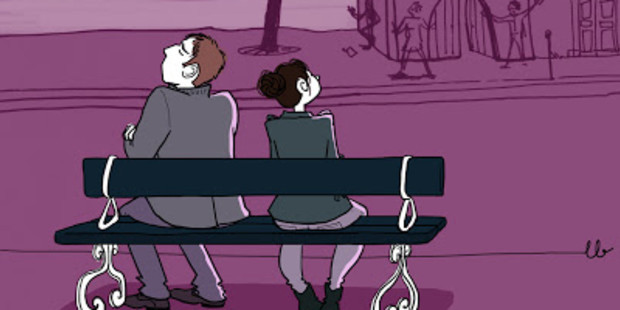I recently re-read the many letters that my wife has been collecting since the beginning of our relationship—letters bearing witness to the fact that, at the beginning, I still hadn’t made the decision to totally commit myself to our love. Inside some of these missives were phrases expressing passionate sentiments, but in a totally unoriginal style. As I read them, I rediscovered the sentimental ups and downs of an apprentice writer and poet. How much I have learned about passion (and writing) since then!
Among these bundles was the first letter that I ever wrote to her after we met. It begins with the trite phrase, “Love brought us together!” It then moves on to a description of my feelings, with what I though were beautiful and expressive words that seduced, that sang, that danced … Words capable of conquering the soul of any woman who read them.
3 questions every woman is dying to be asked
Immediately after that letter, I found another that I had written to her after an unpleasant experience. At the time, I thought our definitive separation was an undeniable fact; I began that letter with the solemn phrase, “Life has forced us apart.” Then, I added a series of phrases inviting her to accept the situation, to be consoled, and to forget the past, excusing us both from the relationship.
In both letters, I realized, I referred to love as something that had come from beyond us, from some mysterious galaxy in the universe, like an arrow from Cupid: in one way or another, as a “something” or “someone” foreign to us that had taken control, submitting us to emotional upheavals, sentiments, anxieties, desires, sorrows and frustrations. (Years later, of a much more coldly rational mind, I can see now that I was the one who felt all of that, not my wife).
One man’s case for bringing back the handwritten love letter!
Fortunately, I eventually understood that love isn’t a third party I can blame. It is not “someone” I can hold responsible for making me fall in or out of love, so I can wash my hands of guilt. Love does not make us live for it, enjoy it, and suffer for it. Above all, love does not wither or die as we stand helplessly by, not knowing how, why, or where it became terminally ill.
Of course, as in any love story, there are plenty of supporting actors. Yes, there are other people and forces sometimes at work. But we, and no one else, are the protagonists. We and only we are the ones who love, bring our loves to life, sustain them, make them grow, reinvigorate them or kill them. We are the ones responsible, even though we may try to hide behind a disguise—so well camouflaged that we are the first ones to be tricked by our own absence from the scene at hand.
Thankfully, I no longer refuse to be the protagonist of my own life; I have taken control of my own love. I clearly recognize my capacity to love, and above all, my need to be loved. I accept all the human characteristics of love, the bad and the good, because our imperfect love reflects who we are: the greatness of love, and its squalor; its contradictions and limitations, its truths and its appearances, deceptions and self-deceptions; its growth, its days of aridity, its routines, failures, mistakes and comebacks. (And who doesn’t love a good comeback story?) Love’s persevering willingness to start over, I think, is so humble and so very human.
No longer do I transfer my responsibility in love to some other mysterious being; I have left that attitude, along with fate, destiny, Orion, or the spring , behind me.
Reflection of the day: Responsibility is the maturity of freedom; commitment is the maturity of responsibility; and love is the maturity of commitment. What we do derives from who we are.

